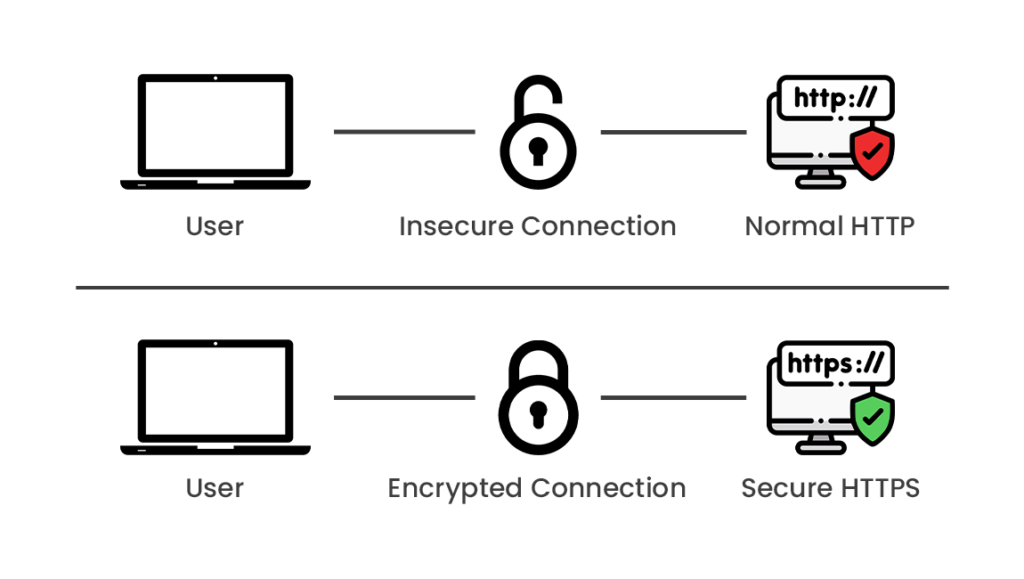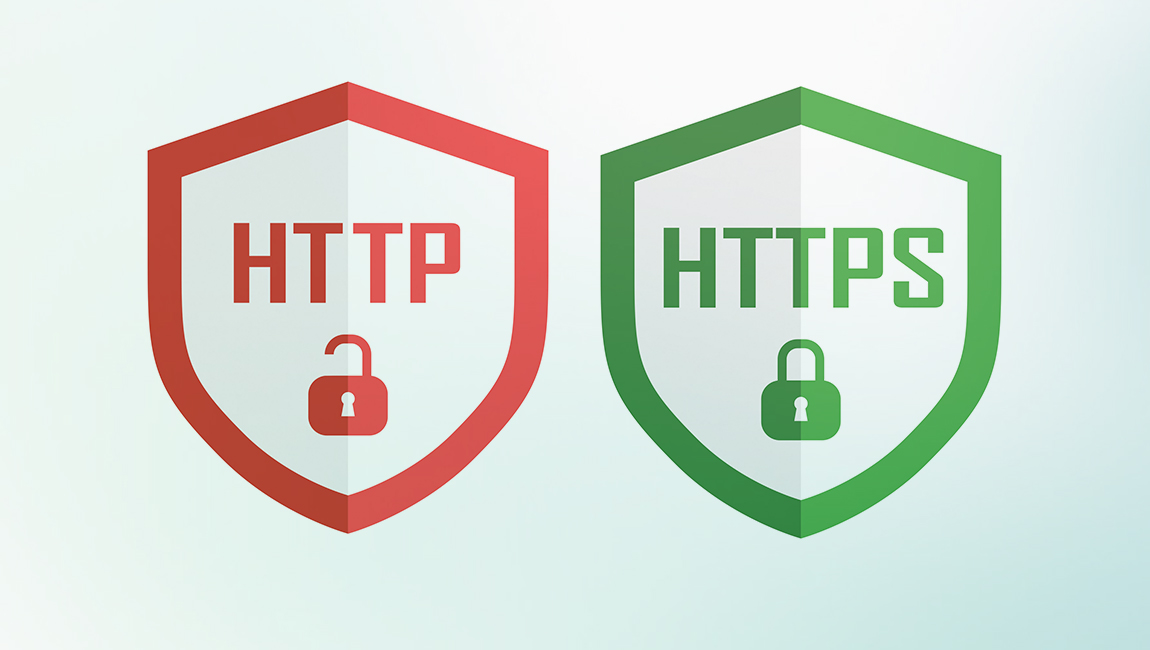Understanding The Basics Of HTTP And HTTPS
The first and foremost thing we should go over is what HTTP and HTTPS actually are because it will be hard to understand the impact of swapping from one to another or how to choose between the two without having a general understanding of both.
The original edition of HTTP was initially introduced in 1989, and five years later, the secure and encrypted version of HTTP was released called HTTPS. In order to safeguard users, major browsers such as Chrome and Firefox implemented HTTPS as the default web service protocol.
If you are unaware of these terms, do not worry because you have come to the right place. Let’s look at each one individually, their workings, and how it works.
What is HTTP & How Does It Work?
Protocols at the application layer are called HTTP, or Hypertext Transfer Protocols. Simply put, it is a set of rules that determines how information can be transferred online on the internet. This protocol was used for all the early websites.
When trying to access any webpage, your browser will send a ping request to the server on the web where the page is hosted. If the transmission is successful, you can access the webpage. And if not, you will see an HTTP error code, which means something went wrong during the transferal process.
What is HTTPS & How Does It Work?
HTTPS stands for Hypertext Transfer Protocol Secure. You can say HTTPS is a secure edition of HTTP. The secured version implements SSL or TLS technology to encrypt the information transmitted between the server and a client.
The added layer of a security certificate makes HTTPS a better alternative between the two protocols. It creates a connection between the server and the browser, protecting sensitive information from being stolen.
HTTP Vs HTTPS: Difference Between The Two
 Let’s figure out some of the main differences between the two terms to understand better.
Let’s figure out some of the main differences between the two terms to understand better.
- One of the main differences between them is that HTTPS uses TLS (SSL) encryption for even normal requests and is, therefore, more secure than HTTP.
- HTTPS works on the transport layer, whereas HTTP functions on the application layer.
- Data exchange happens in cipher text, or you can encrypt text in a secured version. On the other hand, in HTTP, data is exchanged in plain text and is not scrambled before sending.
- Sites using HTTPS will receive an automatic bump in rankings, as announced by Google. HTTP does not help to improve the search ranking as such.
Which One Is Better For SEO: HTTPS Or HTTP?
It is always HTTPS when it comes to SEO. Let us have a look at some of the important reasons to consider HTTPS over HTTP.
-
The Speed Element
One of the most important ranking components of search engines considers the loading time for both websites and pages. HTTP becomes weak when it comes to speed because it allows only one outstanding request per connection. Thereby resulting in reduced upload speeds.
Load times in HTTPS are shorter and are, therefore faster than HTTP.
-
Significant Site Security
Security is an essential factor search engines look for when ranking websites or pages. This is why HTTPS has more advantages than HTTP regarding SEO because of its security purpose.
The visitors are more likely to browse through sites they know and feel are secure. AS HTTPS provides a secure connection, Google announced HTTPS is a ranking signal they use in their algorithm.
-
Precise And Clear Referral Dat
Another SEO point of view advantage you get with HTTPS is a better perception of referral data that you do not get with HTTP.
For instance, if your website is still running on HTTP and when you check your data in the analytics, the traffic passing through referral sources will appear as direct traffic. With HTTPS, you will get a clear idea of where your traffic is coming from.
By incorporating this knowledge into your SEO techniques, you’ll be able to improve your results.
-
Building Authority / User Trust
Browsers such as Chrome let visitors know that a website they are visiting uses HTTP, which is not safe. Many visitors leave immediately, and this high bounce rate will negatively impact your SEO as it is a bad signal toward user experience.
Moreover, when a user visits a website employing HTTPS, search engines will show that the website they visit is safe. Such safety signals encourage visitors to interact more with secure websites.
The HTTPS protocol has been the standard for several years, so it is a good idea to install it on your website. The benefits of HTTPS include protecting sensitive data, enhancing rankings/performance, and making your website more trustworthy.



